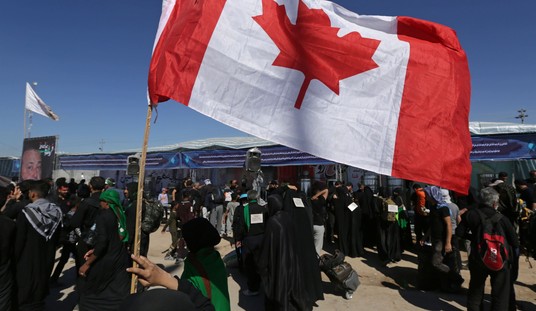The Russians appear to have bought peace in Chechnya the old-fashioned way: they bought the rebels. The new Chechen regiment has become the best-equipped unit in the Russian army, and the former rebels now busy themselves with hunting down the remainder of their former colleagues. However, with Vladimir Putin leaving the presidency, the risk increases that the Russians may not have bought the rebels, but merely rented them while arming them to the teeth:
At the barracks nestled in the Caucasus mountains, the Chechen military officer popped a chunk of moist, fatty mutton into his mouth and leaned across the table.
“We now have new weapons, new armored personnel carriers, sniper rifles and anti-mine equipment,” he said wiping the grease from his mouth with the back of his hand.
“The Russians have re-equipped and trained my men.”
This is the trade-off that has helped Russian President Vladimir Putin subdue a separatist insurgency in Chechnya that raged for more than a decade.
Moscow has armed and equipped a local army loyal to Chechen president Ramzan Kadyrov, a former rebel leader, and given it the task of keeping control. The danger, say analysts, is that this force could turn against the Kremlin.
Kadyrov reached a peace agreement with Putin, but that mostly relies on the relationship between the two men. His father, one of the rebel leaders who switched loyalties to the Kremlin, paid for that decision with his life in May 2004 in an assassination by rebels in Grozny. Putin appointed a caretaker president of Chechnya to replace the deceased Kadyrov until his son became old enough to take the position himself in February 2007. Kadyrov remains fiercely loyal to Putin — but Putin will no longer hold the Russian presidency after May.
The new army, in turn, remains fiercely loyal to Kadyrov, and it’s not hard to understand why. The officers earn a fortune for their work, especially in economically depressed Chechnya. They have the latest in weapons, and they can assist in needed rebuilding efforts for their province. With their help, Kadyrov has begun to build a cult of personality in Chechnya, with his portraits appearing on buildings all over Chechnya — although enough of them have Putin’s face on them to ensure Putin’s rehabilitation among Chechens, at least for now.
The problem will arise when Putin no longer has the same power he does now. Kadyrov is only 31 years old and will outlive Putin and Dmitry Medvedev’s grip on the Russian state. For now, he can build himself up in a manner similar to Saparmurat “Turkmenbashi” Niyazov in Turkmenistan but subordinate himself to Putin. When he sees an opportunity, he will have all of the resources he needs to press against a weakened Kremlin to once again fight for Chechnyan independence, and he will have had the time to wipe out all of the other rebel leaders and absorb their fighters into his new Chechen army — at Russia’s expense.
Putin may have bought no more than 20 years of peace in Chechnya. Time is on Kadyrov’s side, and by the time that opening arrives, the Russians will have little means to stop him.








Join the conversation as a VIP Member